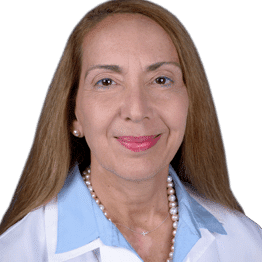
Infertility is more common than people realize and it is estimated that one in seven women will experience difficulty in conceiving. There is more public awareness of fertility issues that can affect women and men, as well as, there is a growing number of resources that women and men can now seek out for fertility assistance.
If you feel like you are on an island, it’s important to know you are not alone in what you are experiencing, and fertility specialists are here to help. Infertility affects 10-15 percent of couples of reproductive ages.
Causes and Treatment
Infertility can be caused by a number of both female and/or male factors.
We recommend you seek help from a fertility specialist if you have not become pregnant after one year of trying and having regular unprotected intercourse if you are younger than 35 years of age, and after six months of trying if you are 35 years or older. We also encourage couples to seek care if they have a known or pre-existing fertility problem.
Female factors can be related to tubal disease or blockage, ovulatory factors such as infrequent or no ovulation, poor egg quality, or endometriosis. Male factors can be related to amount and health of the sperm. A series of tests will be done in an attempt to determine the cause of your infertility.
The available female tests include evaluation of fallopian tube patency and uterine cavity via a test called a hysterosalpingogram (HSG) or sonohysterography (SHG), evaluation of ovarian reserve that helps assess the amount of eggs remaining in the ovaries with a blood test done at a specific time of your cycle, FSH and Estradiol or AMH level.
The available male test to evaluate the amount and quality of the sperm is the semen analysis.
The fertility specialist will meet with you and your partner and review your history, any prior testing and treatment that you may have had, and discuss with you any testing needed to determine the cause of the infertility. At the completion of the visit, the fertility specialist will partner with you to select optimal fertility therapy that gives balance to risk and benefit based on your specific information.
The fertility treatment options depend on the cause of the infertility. Some of the options available include ovulation induction or super-ovulation alone or in combination with intrauterine insemination or in-vitro fertilization.
Awareness and support
While infertility has been present throughout centuries it was not talked about, as it was often associated with social alienation and isolation. With the heightened awareness that infertility is a recognized medical condition with the ability to diagnosis and treat, more women and couples are more comfortable sharing their difficulties in achieving a pregnancy with others.
Infertility carries a huge emotional impact for both the women and their families. Understanding and acknowledging what they are going through is a great first step. Offering your time and any support that is within your means would be greatly appreciated.
There are both local and national infertility support groups available to patients, as well as a patient information resources through the American Society of Reproductive Medicine (ASRM).
For further information about the UofL Physicians–Fertility Center, visit the practice website. To learn more about Dr. Pagidas, visit her physician profile. Request an appointment online, or call (502) 588-4400.









